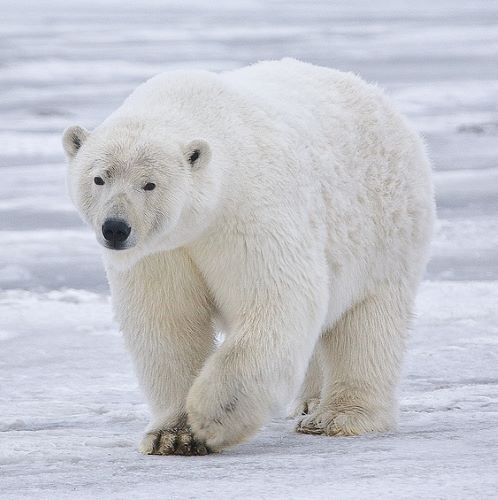Polar Bears Face New Health Risks in Warming Arctic

A recent study published in PLOS ONE reveals alarming findings about polar bears in Alaska. As climate change accelerates, these majestic creatures are encountering an increasing number of pathogens. The research indicates that warming temperatures are allowing viruses, bacteria, and parasites to thrive in Arctic conditions, where they previously could not survive. This shift poses significant threats to polar bear populations, which are already vulnerable due to habitat loss and other environmental pressures. The study highlights the urgent need to understand the implications of these changes for both wildlife and human communities in the region.
Pathogen Exposure in the Chukchi Sea Region
The study focused on polar bears in the Chukchi Sea, analyzing blood samples from 232 bears collected between 2008 and 2017. These samples were compared to those from 115 bears surveyed between 1987 and 1994. The results showed a concerning increase in antibodies for various pathogens. Notably, exposure to Neospora caninum, a parasite, and bacteria responsible for brucellosis and tularemia has risen significantly. The presence of Toxoplasma gondii, a parasite often associated with cats, surged from 2 percent to 14 percent among the bears. Additionally, antibodies for the canine distemper virus were detected more frequently.
Dr. Karyn Rode, a wildlife biologist from the U.S. Geological Survey and a contributor to the study, emphasized that rising temperatures are enabling pathogens to invade areas that were once inhospitable. This is particularly evident in the Chukchi Sea region, where polar bears are adapting to diminishing sea ice. As they spend more time on land, they increasingly come into contact with human activities and waste, further exposing them to these harmful pathogens. The findings raise critical concerns about the health of polar bears and the broader implications for Arctic ecosystems.
Implications for the Arctic Food Chain
The study also explored the dietary habits of polar bears by examining chemical markers in their fur. This analysis revealed a link between the bears’ prey consumption and their exposure to pathogens. The findings suggest that the entire Arctic food chain, including species like ringed seals, may be affected by these emerging health risks. As polar bears adapt their diets in response to changing environmental conditions, they may inadvertently increase their exposure to harmful pathogens.
Moreover, there are potential risks for human communities that rely on subsistence diets involving polar bears. Dr. Rode highlighted the need for further research to understand how these pathogens could impact other species and human populations in the region. The interconnectedness of the Arctic ecosystem means that changes affecting polar bears could have cascading effects on other wildlife and the people who depend on them for sustenance. This underscores the importance of monitoring wildlife health and the potential risks posed by climate change.
Need for Further Research and Monitoring
While the study provides valuable insights into the health challenges facing polar bears, experts emphasize the need for additional research. Dr. Andy Dobson, a wildlife disease ecologist at Princeton University, noted that while the findings are intriguing, more data is necessary to draw conclusive results. Understanding the full extent of pathogen exposure across the polar bear population will be crucial for developing effective conservation strategies.
As climate change continues to reshape the Arctic landscape, monitoring the health of polar bears and other wildlife will become increasingly important. Researchers must investigate how these pathogens may spread and affect various species within the ecosystem. This knowledge will be vital for informing conservation efforts and protecting both wildlife and human communities in the Arctic. The urgency of the situation calls for collaborative efforts among scientists, policymakers, and local communities to address the challenges posed by climate change and emerging health risks.
Observer Voice is the one stop site for National, International news, Sports, Editor’s Choice, Art/culture contents, Quotes and much more. We also cover historical contents. Historical contents includes World History, Indian History, and what happened today. The website also covers Entertainment across the India and World.

